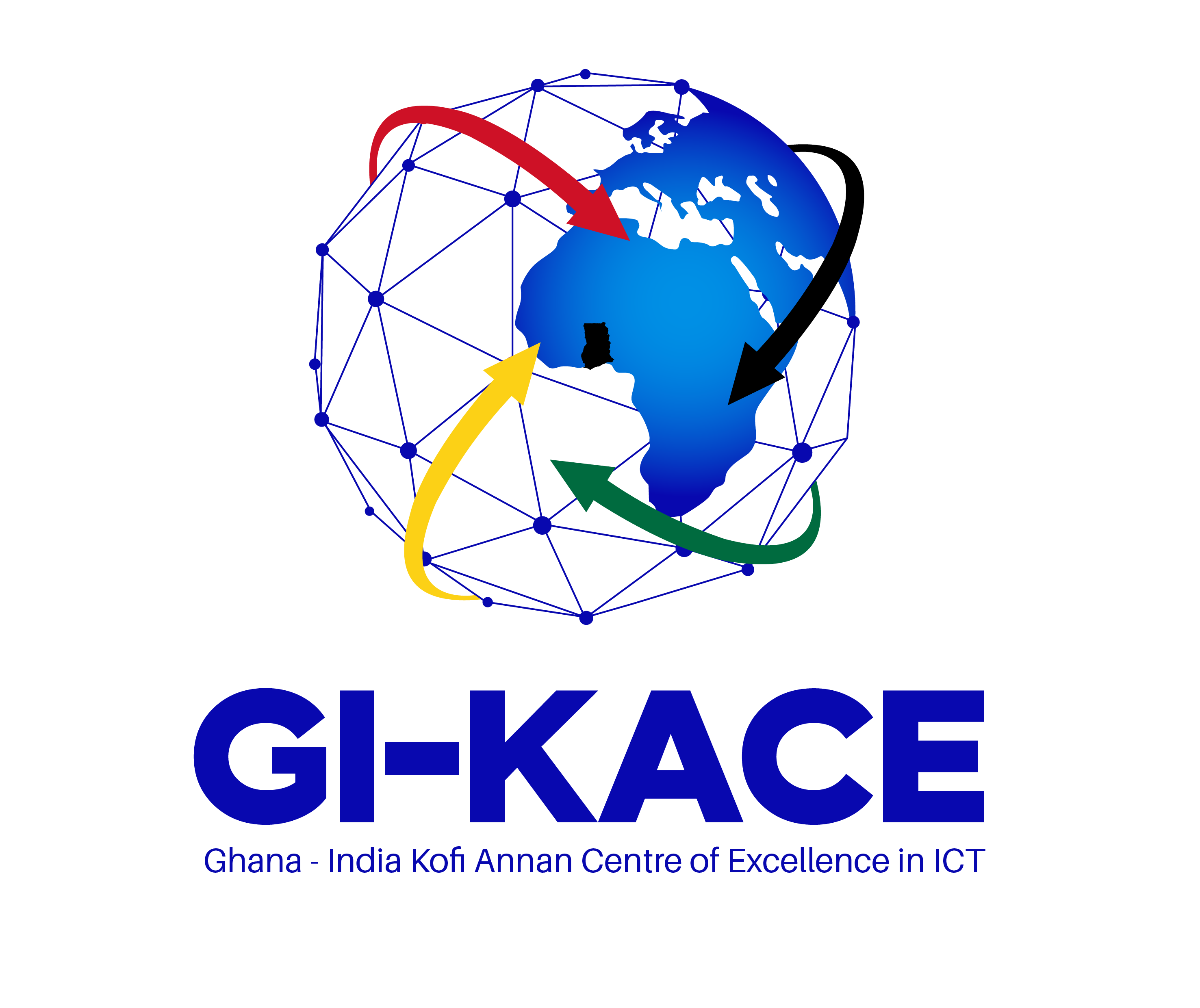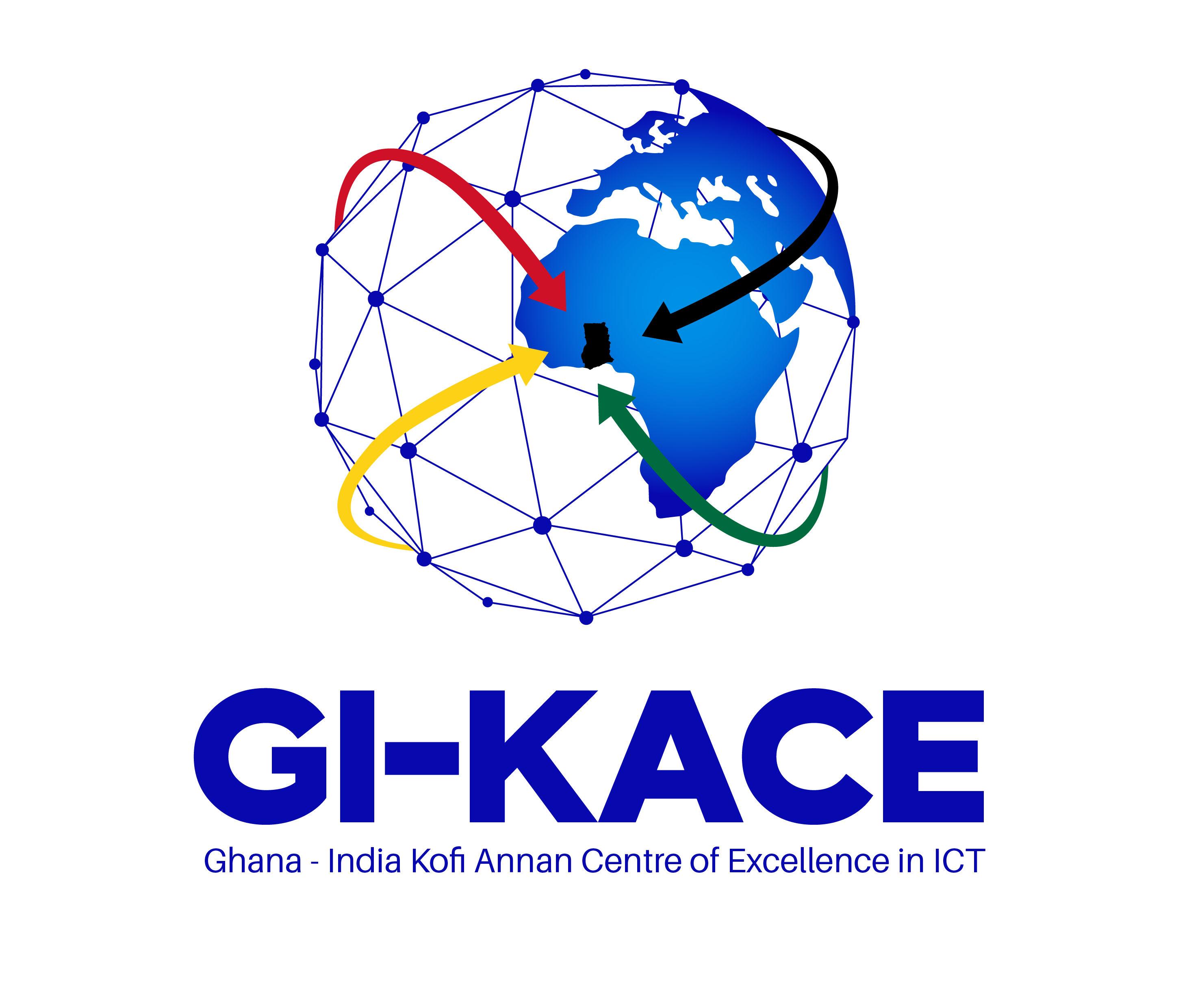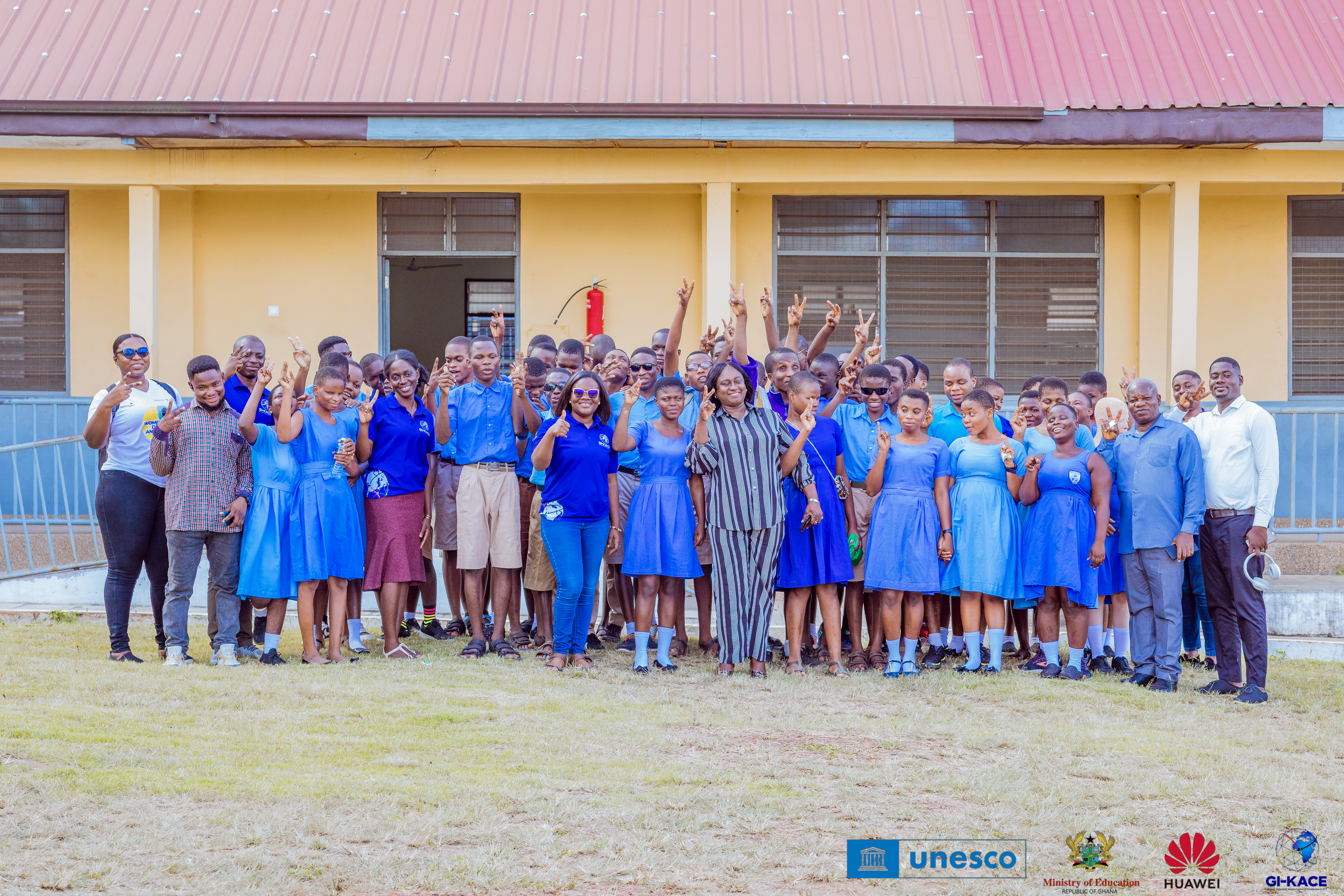Director for Corporate Affairs at the Ghana-India Kofi Annan Centre of Excellence in ICT (GI-KACE), Kobi Hemaa Osisiadan Bekoe, has advocated for the enhancement of technological inclusivity to help transform the educational system in Ghana, particularly Persons with Disabilities (PWDs).
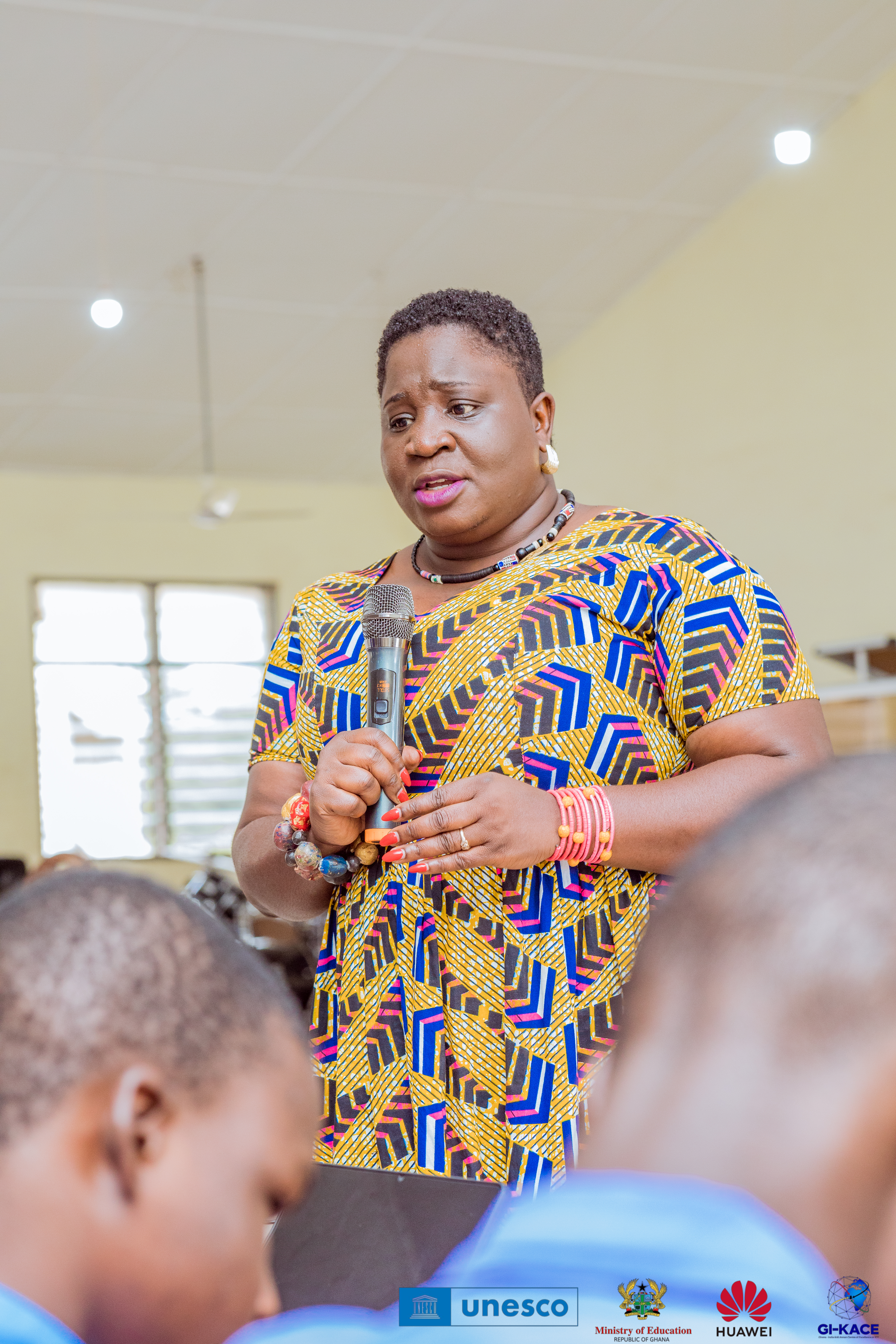
Kobi Hemaa Osisiadan Bekoe made this known during a Technology-Enabled Open School Project (TeOSS) training at the Akropong School for the Blind (Special School).
The Technology-Enabled Open School Project (TeOSS) according to her, has been implemented in Ghana with the support of UNESCO, Huawei and the Ghana Education Service (GES), aiming at creating an inclusive learning environment for students across the country.
‘‘The project is part of a global effort to leverage technology in creating a learning environment that caters for students, particularly those with disabilities and contributes directly to Ghana’s progress towards the Sustainable Development Goal 4, which focuses on quality education for all’’ she stated.
She further indicated that the TeOSS project is making such a significant step in Ghana by collaborating with GI-KACE to help train over 2,400 students including PWDs.
‘‘This will empower both teachers and students to effectively utilize technology in their classrooms, enabling them to deliver inclusive and engaging lessons’’ she emphasized.
Kobi Hemaa Osisiadan Bekoe described the TeOSS project as one that serves as an outstanding example of how technology can be harnessed to create more inclusive and equitable education systems by providing access to digital tools and skills and also preparing students for a future where technological literacy is crucial.
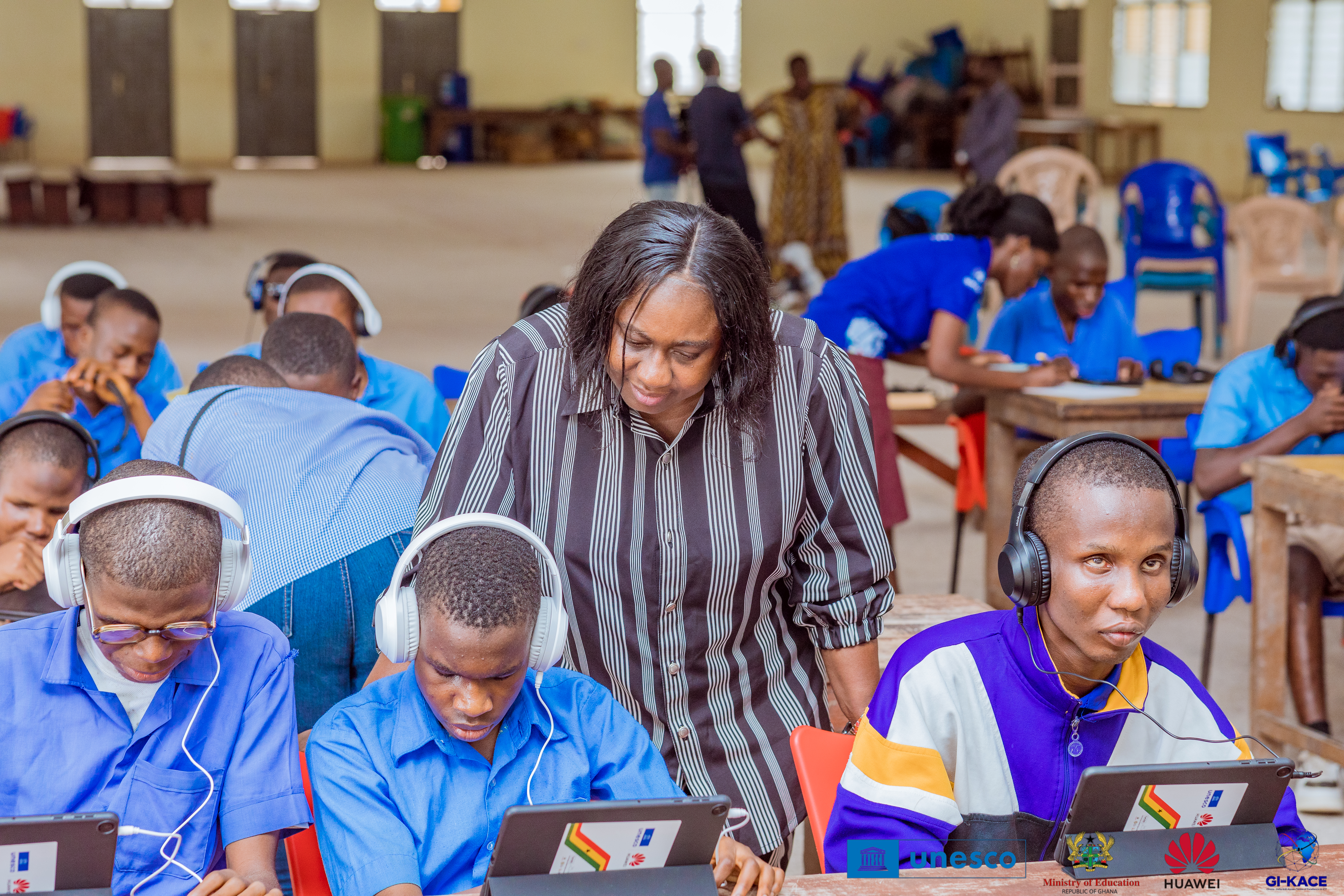
The Headmistress for the Akropong School for the Blind (Special School), Madam Veronica Dong, also highlighted the need for continuous digital training methods to enhance the effective integration of technology into their curriculum for both students and teachers.
According to her, continuous training will help improve the professional development of educators and students as well as the sustainability of the whole project.
“We request further training sessions to enhance the teachers’ teaching methods and ensure they can effectively integrate technology into their classrooms,” she noted.
Madam Dong further expressed her satisfaction with the TeOSS project, stating that, it has focused on utilizing technology to bridge the educational gap faced by marginalized groups, including students with disabilities.
She assured that, she and her team are dedicated to equipping students with visual impairment with essential technological skills and also gain access to tools that empower them in today’s digital world.
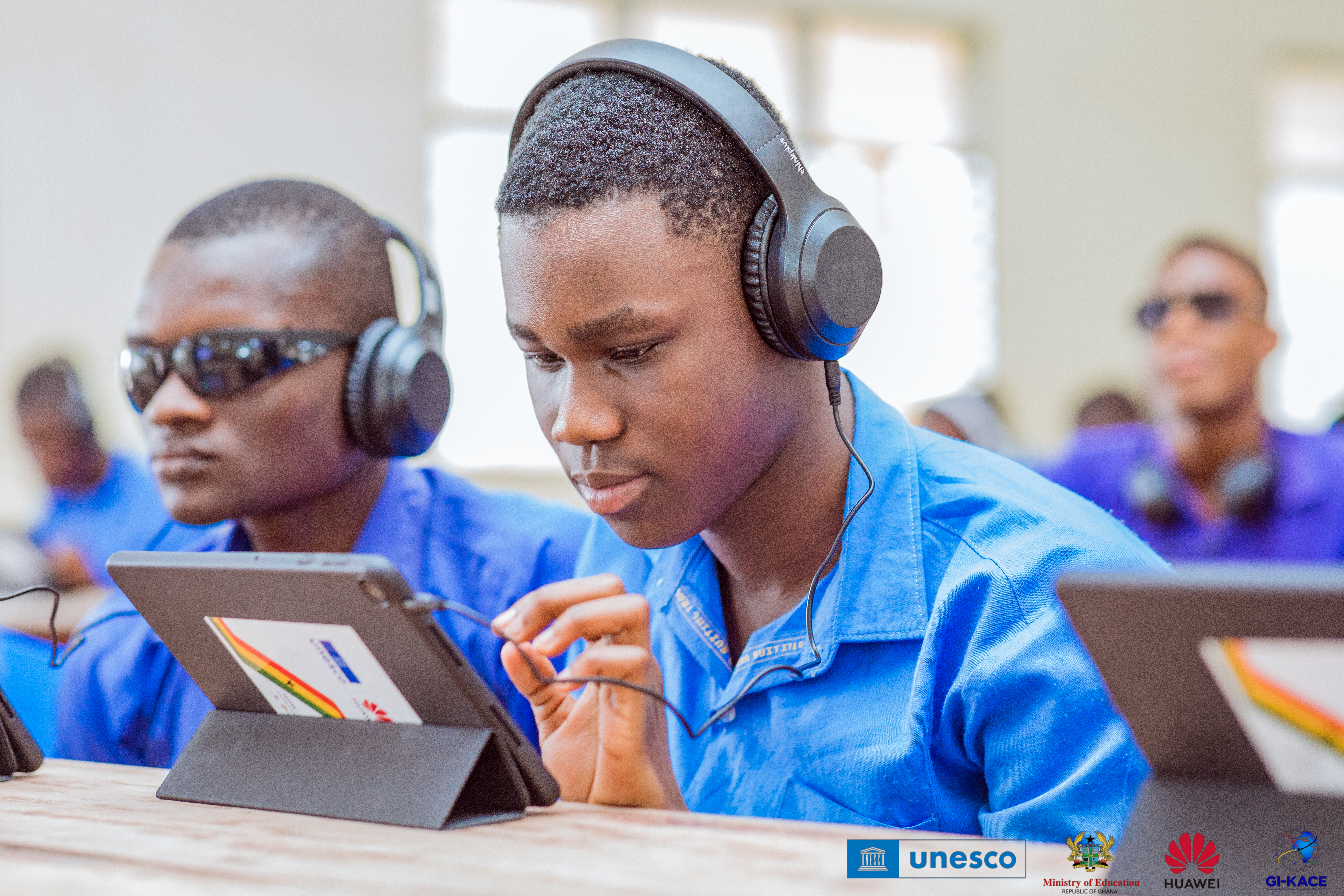
Students at the Akropong School for the Blind, who were involved in the TeOSS project, commended the initiative and stressed that, the training they have received will not be a one-day wonder but a foundation for future learning.
